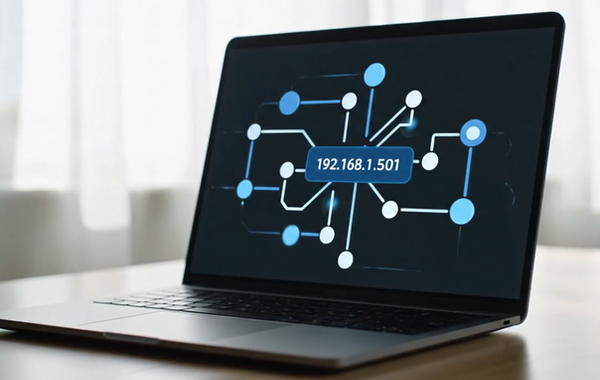IP Finder
Discover your public and private IP address instantly. Our advanced network tool provides geolocation information, Internet Service Provider (ISP), ASN, time zone, and more. Query any IP manually and get accurate data quickly and easily.
What exactly is an IP address?
An IP address is a series of numbers separated by periods (such as 192.168.1.1 or 8.8.8.8) that acts as your device's postal address on the vast internet. Without it, the websites you visit wouldn't know where to send the information you request, your emails would get lost, and you wouldn't be able to stream videos.
It's essential to understand that there are two main types of IP addresses that work together:
1. Public IP: Your Address to the World
The public IP is the main address assigned to you by your Internet Service Provider (ISP). It represents your entire home or office network to the rest of the internet.
-
It's Unique: No two networks in the world can have the same public IP address.
-
Identify Your Network: All devices connected to your router (computers, phones, consoles) access the internet using this same public IP address.
-
Reveals General Information: As you've seen in the tool, your public IP address can be used to determine your approximate geographic location (country, city), your Internet Service Provider (ISP), and other network information.
Analogy: Think of the public IP address as the address of an apartment building. All mail from outside arrives at that single address.
2. Private IP: Your Apartment Number
The private IP address is the address your router assigns to each device that connects to it within your local network.
-
It's Not Globally Unique: Many networks around the world use the same range of private IP addresses (such as 192.168.x.x or 10.0.x.x). They only need to be unique within your own network.
-
Identifies Your Devices Internally: Lets your router know which specific device (your phone, your laptop) to send information coming from the internet to.
-
Not Visible on the Internet: No one outside your local network can directly see or access your private IP addresses.
Analogy: Continuing with the example, the Private IP address is your apartment or door number. Once mail arrives at the building (the public IP address), the router (the concierge) needs to know which apartment (private IP address) to deliver it to.
What Are IP Addresses Used For?
Their main function is to ensure that data traffic reaches its correct destination, but this involves several key processes:
-
Routing: IP addresses allow routers and servers around the world to know the best path to send data packets so that they reach their destination.
-
Identification: They uniquely identify a device or network on the internet.
-
Geolocation: They allow online services to offer content relevant to your location, such as showing you the local weather, news from your region, or results in your language.
-
Access Control: Websites and services can use IP addresses to allow or block access from certain regions or networks.
When you visit a website (e.g., google.com), your device sends a request to a DNS server (which translates the domain name into an IP address, such as 142.250.190.46). Your router (using its public IP address) then routes the request across the internet to the destination server, enabling communication.
Importance of IP Addresses
-
They facilitate data routing on the internet.
-
They allow the configuration of private networks (LANs).
-
They are essential for online services, gaming, streaming, and more.
Problems and Future
IPv4 address exhaustion drove the adoption of IPv6, which offers greater security and efficiency. Additionally, tools like NAT (Network Address Translation) allow multiple devices to share a public IP address.
In short, IP addresses are the "digital ID" of devices, enabling the global interconnection that defines the digital age.

.png)